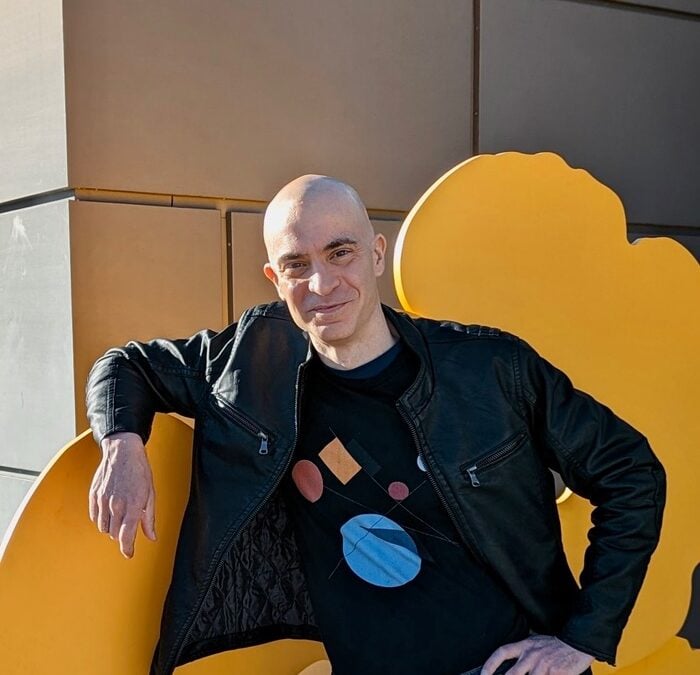You may not realize it, but Taylor Swift is the best thing to happen to voter rolls since Donald Trump. In September, after she encouraged her Instagram followers to participate in National Voter Registration Day, Vote.org saw its biggest spike in years, as thousands of Swifties became soon-to-be voters. “I’ve heard you raise your voices,” she wrote to her fans. “And I know how powerful they are.”
But do we know how powerful fans could be?
Every year, millions of fans go to concerts across the country, participating in a collective experience with their favorite artists and fellow fans—driving a $30 billion dollar industry. But in light of the climate emergency, what if artists could do more than entertain?

Artists as Advocates
Throughout history, artists have used their influence to amplify social movements. Bob Dylan galvanized opposition to the Vietnam War, Billie Holiday’s “Strange Fruit” inspired civil rights activists, and young people protested gun violence to the sound of AJR’s “Burn the House Down.”
What if today’s artists built on this legacy by using their concerts to amplify the climate movement?
Music artists have the potential to serve as trusted messengers who encourage their fans to boldly take action on climate change. However, very little has been done to understand how fans view this kind of advocacy, and its impacts, at live events.
“Amplify: Building a Fan-Based Climate Movement” is Planet Reimagined’s latest research and advocacy project. It aims to address this gap by investigating how music fans can mobilize to tackle the climate crisis while gathering for the concert experience: a place where artists and fans share unique moments that could provide a foundation for collective action.

Understanding Fans’ Climate Values
To tackle this challenge, Planet Reimagined partnered with Climate Outreach, a UK-based non-profit focused on public engagement with climate change. Together, we designed a digital and in-person study to better understand how fans perceive artists who actively use their platform to engage with important issues.
With the help of Live Nation’s Green Nation, Ticketmaster, and REVERB—a US-based non-profit working to accelerate climate actions at live music events—Planet Reimagined was first able to send a first-of-its-kind survey to 350,000 live music fans across the U.S., including fans of over 400 artists from a variety of genres.
These initial findings make it clear: Most music fans care about climate change and are ready to act.
Seventy-two percent of live music fans said climate change is an important issue to them personally. In comparison to a national polling by Yale University (65%), this new study indicates that music fans may even be more likely to care about climate change than the general public.
Fans and Artists Speaking Out
In addition, the majority of these fans (78%) are already taking climate action, ranging from discussing the issue with family and friends to participating in protests. The data suggests that the more fans engage with climate change, the more likely they are to take future action.
Most music fans would like to see their favorite artists speak up about climate change (53%). Those who do may even be seen as more inspiring (40%), especially among the majority of fans who are concerned about climate change.
More importantly, if their favorite artist asked them to take climate action, music fans who are concerned about climate change are likely to act. For example; 3 in 5 fans would sign a petition about climate change, 2 in 5 would volunteer with a climate-focused organization, and 1 in 4 would participate in a protest.
With 250+ million people attending live shows across the United States each year, moving even one percent of live music fans to action would create an undeniable movement for change.
Getting to Know Your Fans
Even when the data suggest that supporting climate action will resonate, some artists may still be worried about backlash from a small group of loud fans.
While the large majority of fans support artists speaking out and calling for action, there is a small, but vocal minority (≈30%) who oppose. To navigate this, it’s important that artists do the work to know their fans and lead by example.
When designing their advocacy efforts, artists should spend the time and effort to understand their audience. The data suggest that age, politics, existing views on climate, and previous climate action are indicative of how fans will react to artists sharing climate messages. Meaning, the more that fans are concerned about climate change themselves, the more supportive they will be of artists as messengers.
However, even fans who are unconcerned about climate change support artists reducing their concert emissions and waste, providing an opportunity for initial advocacy efforts even with a less supportive audience.
Leading By Example
It’s also essential that artists lead with their words and actions. One fan plainly stated that artists should, “prove their words with their own actions.” Plus, the data suggest that when artists lead by example and then ask fans to join them, the fans may be more likely to take civic action like volunteering, contacting government officials, or participating in a protest.
With the support of the vast majority of fans, it’s time for artists to speak up and invite fans to take specific and concrete actions around climate, especially since remaining silent for fear of backlash might risk missing out on the net positive benefits of being an inspiring social figure with an activated fanbase.
(Planet Reimagined founder and executive director—and musician—Adam Met is a Worth magazine Worthy 100 honoree.)







